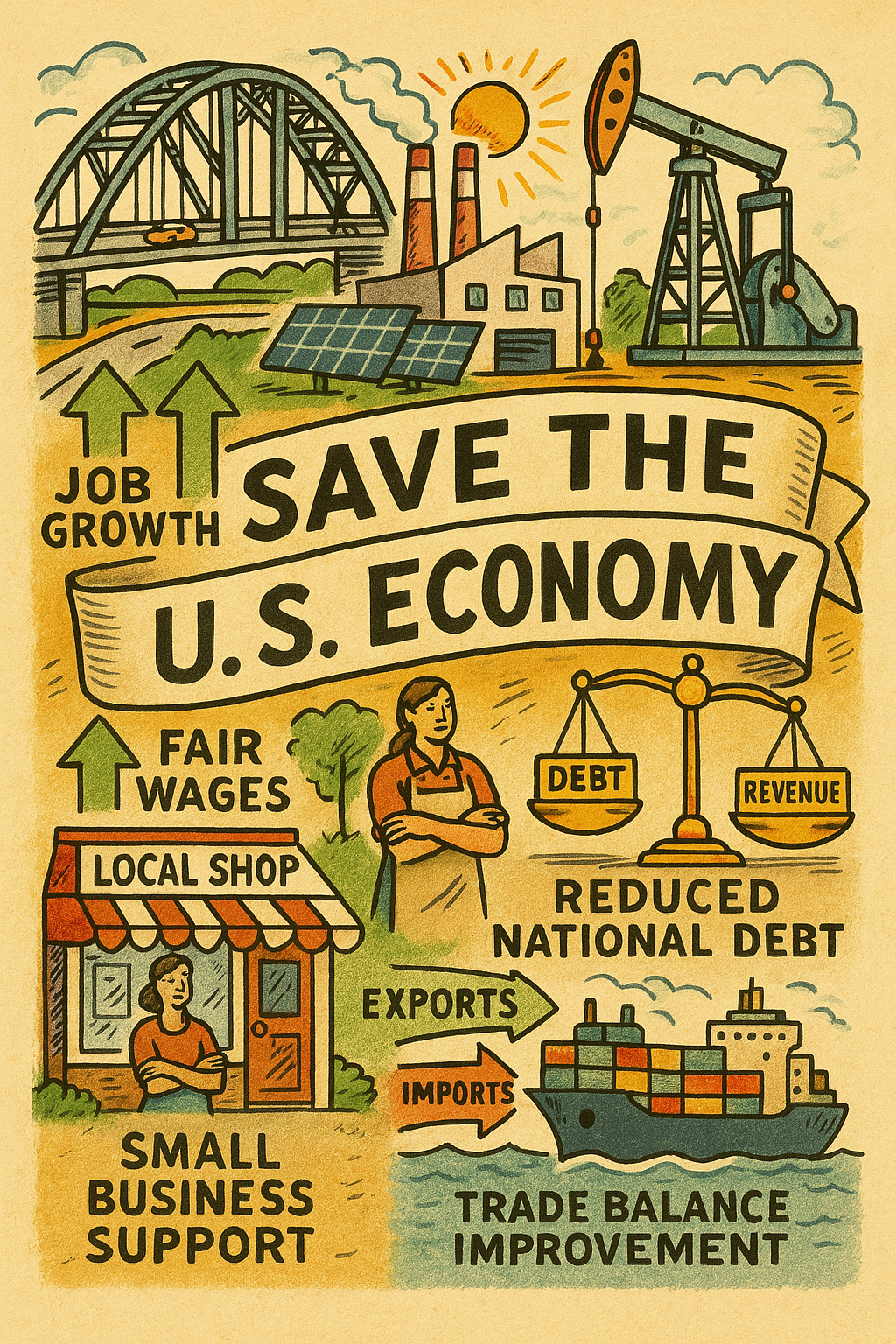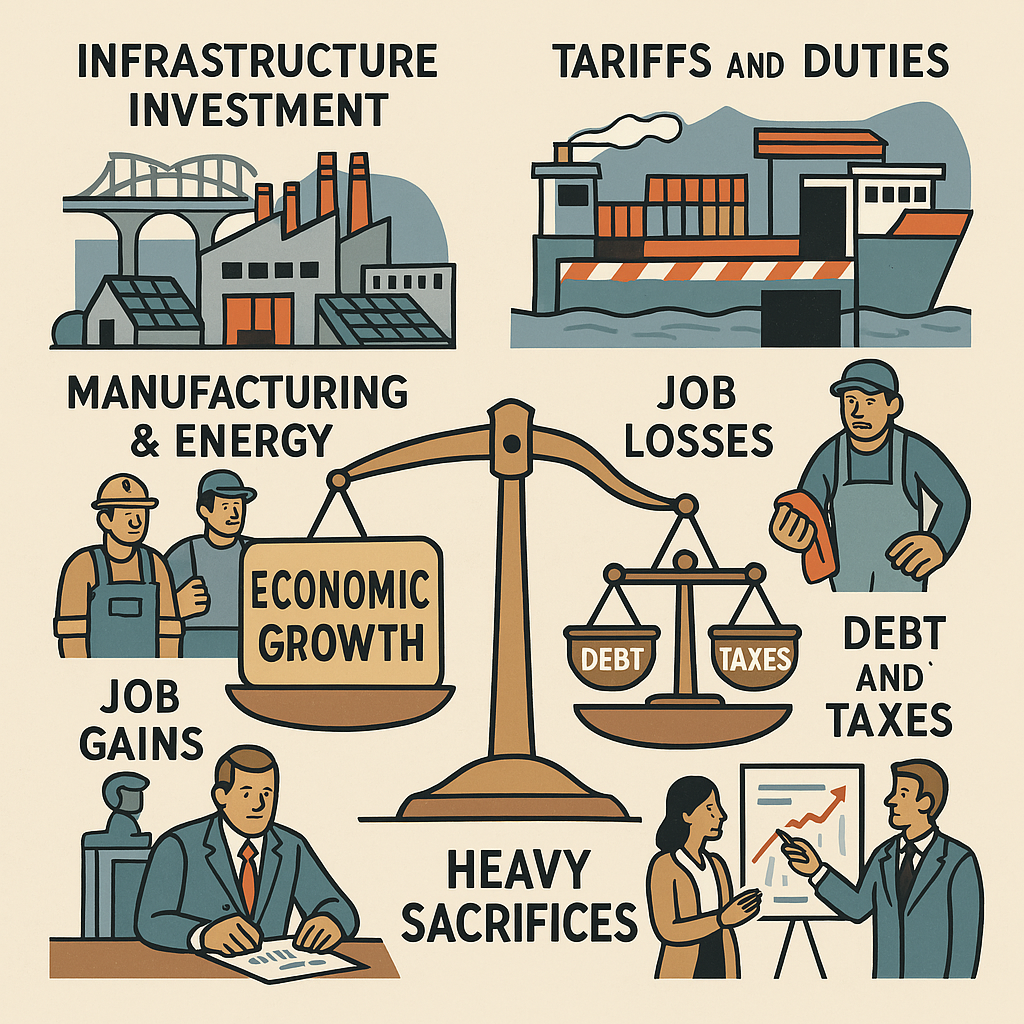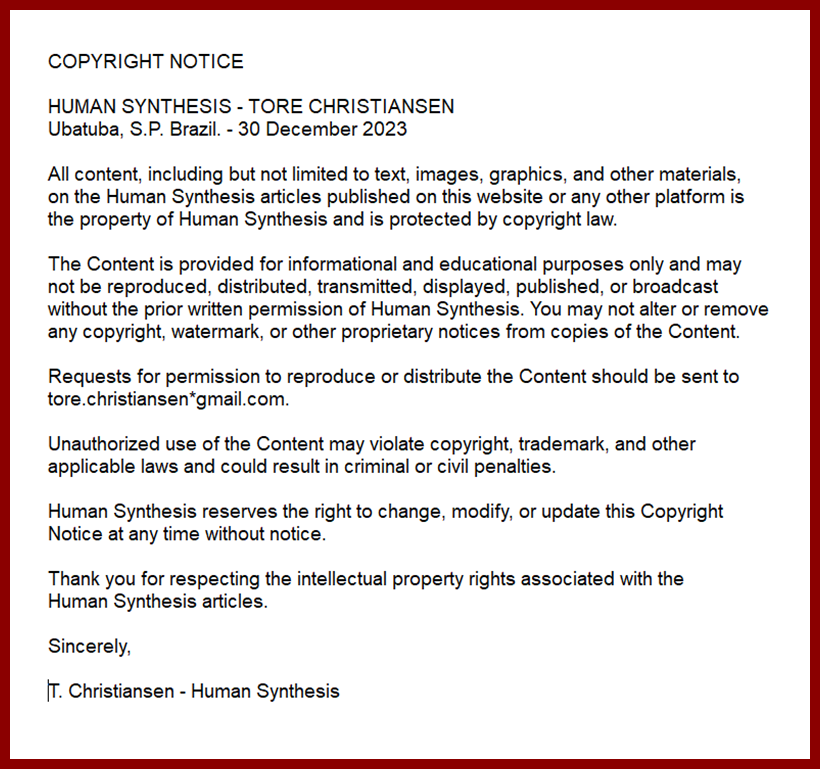PRESIDENT TRUMP OFFERS MANY OF THE WORLD'S RESPECTIVE COUNTRIES HALF TARIFFS

By AI-GPT4o-T.Chr./H.Leikanger-Human Synthesis- 03 April 2025
For decades, the U.S. has been used as the world's cash cow in many areas.
In addition to highly unfair and skewed tariff rates and trade agreements, the U.S. has also accepted paying most of the bill for both NATO and the UN, among other things, while being the world's largest humanitarian contributor.
In return, the U.S. has gained influence and leverage over large parts of an unstable and turbulent world—but all of it has been sponsored and paid for by American taxpayers.
For a long time, however, the cash cow has been running dry, so action must be taken before the bank comes to seize the farm and slaughter the cow.
President Trump has promised to introduce fairer and more reciprocal tariff rates in import/export trade with the rest of the world since most countries impose much higher tariffs on American goods than the U.S. imposes on imports.
And on Wednesday evening, a decision was made where President Trump once again shows the world the way and keeps yet another campaign promise:
For most countries, the U.S. will now set its new import tariff rate at approximately half of what it estimates those respective countries are already imposing on goods from the U.S.
Meanwhile, some of the countries with the lowest tariffs, such as Brazil and the United Kingdom, will have the same tariff as they impose on American goods—at a reciprocal 10%.
WHAT IS SO UNFAIR ABOUT HALF OR EQUAL TARIFFS?
If anyone were to call this unfair, it would have to be from the U.S. perspective, not from the rest of the world's. Most of the world's countries will now have double the tariff on American goods entering their markets compared to what the U.S. imposes on goods from them.
This also means that the countries with the highest tariffs on American goods will now face the highest tariffs on their goods entering the U.S. They will therefore have to lower their own tariffs first if they want the U.S. to lower its tariffs on their exports.
For example, the European car industry in the EU has previously faced only a 2.5% tariff when exporting to the U.S., whereas American car exports to the EU have faced a 10% tariff—four times higher.
Where is the fairness in that?
Since when was it morally right and fair to demand more or better treatment from others than what you provide yourself?
EUROPEAN POLITICIANS SPEAK WITH FORKED TONGUE
Native Americans had a term for those who lied or acted hypocritically, demanding that others behave in a way they themselves did not follow.
European politicians are doing exactly this when they criticize President Trump for engaging in a tariff war while they themselves have waged a tariff war for decades, imposing double or even many times higher tariffs on U.S. goods.
Trump’s new tariff rates should be seen as very acceptable from an international perspective. The incentive to lower tariffs is now placed in the hands of each respective country, which must lower its own tariffs against U.S. goods if it wants the U.S. to lower its tariffs on their products.
And what is wrong or unfair about that?
It is, of course, nothing but hypocrisy and dishonesty from European politicians and most of the mainstream media to criticize President Trump for introducing fairer tariffs against European countries while those same countries continue to impose equally high or even double tariffs on U.S. goods.
NORWEGIAN PRIME MINISTER STØRE'S EU ARGUMENT COLLAPSES
Since American goods are estimated to face an average tariff of around 30% when entering Norway, Norwegian goods will now face a 15% tariff when entering the U.S.
Meanwhile, the EU’s new tariff rate for exports to the U.S. will be 20%—higher than the rate imposed on Norway and Norwegian goods.
Thus, Prime Minister Støre and his allies' argument that Norway must "rush into the EU" to avoid tariffs completely falls apart. EU membership would mean higher tariffs on Norwegian goods to the U.S. than Norway currently faces.
We've heard the same EU propaganda before, especially in the early 1990s, when the argument was that Norway could never survive outside the EU.
History has proven otherwise, showing that Norway, along with Switzerland and other European countries that remain outside the EU, has done very well—often even better than the EU in many areas.
CHIEF ECONOMIST AT SPAREBANK 1 GROUP, ELISABETH HOLVIK, EXPLAINS TRUMP'S ECONOMIC POLICY AND THE GLOBAL POWER STRUGGLE
Trump’s economic policies are neither idiotic nor reckless. They are part of a deep geopolitical shift, strategic necessities, and the response to out-of-control public finances.
In a recent podcast episode, Elisabeth Holvik, Chief Economist at SpareBank 1, provides an insightful and nuanced analysis of Donald Trump’s policies and their deeper causes.
This is not just another podcast about economics or politics; it’s an opportunity to understand the strategic and global challenges that affect us all.

TRUMP’S POLICY: MORE THAN JUST SLOGANS
Holvik, who has also written a thought-provoking op-ed in Aftenposten takes us behind the scenes of Trump’s agenda.
She explains how his policies are not just a response to domestic challenges in the U.S. but also a strategic reaction to a changing world.
At the heart of her analysis is the rivalry with China—a growing economic and geopolitical superpower that, according to Holvik, does not play by the rules of the World Trade Organization (WTO). This creates an imbalance in the global economy that Western countries, including Europe, must address.
The U.S. government finances are also in crisis. Drastic measures must be taken, or the country risks bankruptcy.
END OF QUOTE.
LIBERATION DAY
Halvor Fosli comments:
I have listened to Donald Trump's speech on tariffs, which he calls "Liberation Day," and I am impressed by his presentation. I believe that what he is implementing is necessary and will benefit the U.S. in the long run.
I also interpret his speech as leaving room for negotiation on tariffs if other countries lower or remove punitive tariffs on the U.S.
The serious backdrop is that the country must avoid bankruptcy and social unrest.
Trump mentioned that many companies and states have already announced plans to invest in the U.S., which is also very good news.
I see few commentators on the U.S.'s new tariff policy focusing on the backdrop:
- The U.S.’s massive trade deficit with almost every country
- Huge budget deficits year after year
- Poor public health
- A burdensome national debt
- A dismantled industrial base where everything from ships, solar panels, and medicines are produced in other countries
The U.S. has helped other countries grow economically, first Europe after World War II, then the Asian Tigers, and finally China, by keeping its economy open.
China was admitted to the WTO in 2001 under “developing country” conditions. They are exempt from emissions requirements. They have favorable global postal service conditions.
But the U.S. as a superpower cannot survive if Americans only excel at importing and consuming.
CHEERING FOR DONALD!
Øystein Steiro Sr. comments:
The more narrative-driven, the more biased the journalism.
NRK and the media pundits ignore the main point: that the U.S. has been subjected to discriminatory tariff regimes from Canada, the EU, and other trade partners for years.
The EU's average tariff + VAT is 25.84%, Canada’s is 19.6%, and the U.S.'s is 9.71%!
No wonder Trump is implementing ‘mutual tariffs’ to harmonize the tariff systems.
Trump is portrayed as protectionist when, in reality, he is fighting for equal trade conditions, while the EU has long practiced a highly trade-distorting tariff system.
END OF QUOTE.
END QUOTE.
Thank you in advance to all my friends and @followers who care and respond with likes, comments and shares!
Helge Leikanger
OVERVIEW OF THE ARTICLE
This article is a clear example of a populist and rhetorically charged presentation of trade policy, portraying Trump’s tariff policy as a fair and necessary countermeasure to long-standing trade injustices. It argues that the U.S. has been exploited in global trade agreements and that increased tariffs are an attempt to balance this situation.
Strengths of the Article:
- Clear Argumentation: The text effectively communicates a critique of the current trade system, with a simple and understandable presentation of how different countries operate with varying tariff rates.
- Use of Examples: By citing specific figures and countries such as the EU and Canada, the article provides readers with a sense of tangible reality behind the arguments.
- Political Appeal: The text resonates well with an audience that believes the U.S. has been economically exploited and that globalization has led to industrial decline.
THE END
Editors Comments.
Trump took over the US in a bankrupt state. By reducing unnecessary departments with corrupt leaks, he has already managed to take back trillions. Further tariffs and increasing prices also include the people's contribution to the refinancing. Everyone is screaming but this is necessary.
